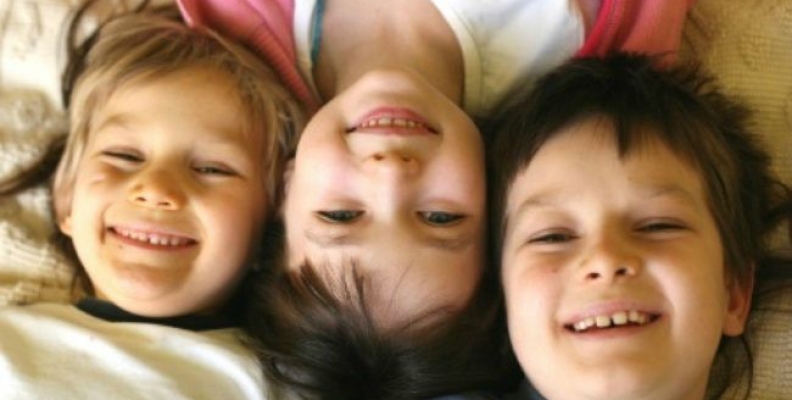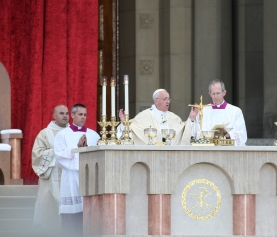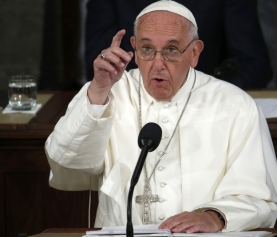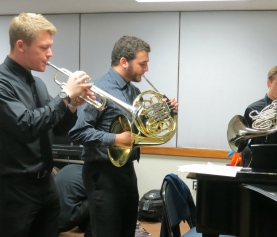
Lucia Silecchia: “The Pope Has a Family Too” — Sisters and Brothers and the Ties that Bind Them
Here inside the Beltway as we plan for Pope Francis’s visit to us, it can be easy to forget that the original impetus for his travel to the United States was the World Meeting of Families, hosted by the beautifully named “City of Brotherly Love.” There, concerns of the family will be front and center with a particular emphasis on marriage and parenthood as the foundation for family life. However, the bonds between husbands and wives and parents and children also create another set of relationships often overlooked in discussions of the family: the bonds between siblings.
Siblings are on my mind as we have recently celebrated the feast day of St. Martha — one of my favorites! St. Martha is certainly the unofficial patron of the busy and the worried, but she is also among the New Testament’s most famous siblings. She squabbled with her sister, mourned her brother, and with them offered Christ friendship and the “many details of hospitality” for which she is so well known. We know little more about this trio except that they were sisters and brother to each other, and beloved friends of Christ.
Pope Francis has spoken often about the relationships between siblings. He himself was the oldest of five children, with two sisters and two brothers. Only one now survives, his youngest sister Maria Elena. When Jorge Bergoglio was elected Pope, a reporter asked Maria Elena whether she felt as though she had lost a brother. She replied, “To tell the truth, it’s more like I’ve gained millions of new brothers and sisters, and I’m trying to figure out how to share my brother with all these new members of the family.”
Last August, Pope Francis shared with the world the news of a tragedy that had befallen his brother’s family: An automobile accident had injured his brother’s son, and killed this nephew’s wife and two sons, one an infant and one a young toddler. As he offered his thanks for prayers and condolences, Pope Francis reminded us, “The Pope has a family too.”
More recently, in his discourses on family life woven through his general audiences this year, Pope Francis devoted an entire audience to the relationships among siblings. He said, “ ‘Brother’ and ‘sister’ are words that Christianity really loves” — and indeed this is true. How many times in liturgical celebrations, in sacred songs, and in religious discourse do we describe bonds of love and affection in these terms?
Pope Francis mourned the account of Cain and Abel’s fratricidal conflict and the ways in which, “when the fraternal relationship is destroyed, when the relationship between siblings is destroyed, the road is open to painful experiences of conflict, of betrayal, of hate.” And yet, he also pointed to the beauty of sibling relationships happily lived, calling these relationships “the great school of freedom and peace,” and observing that “among siblings, human coexistence is learned, how one must live in society.”
In a particular way, he praised the importance of caring for siblings who are weak, noting that “[f]amilial fraternity shines in a special way when we see the care, the patience, the affection that envelop the weakest little brother or sister, sick or physically challenged. There are countless brothers and sisters who do this, throughout the world. … This work of helping among siblings is beautiful.”
And, indeed, it is. The relationship among brothers and sisters is unique. Unlike other relationships, there are few, if any, legal rights and responsibilities that run between siblings. These relationships are not freely chosen and they often involve those who find themselves living vastly different lives far away from each other. Yet, for many, the relationships between sisters and brothers are the longest relationships of their lives. Siblings are those who share our pasts. Our own history is entrusted to our siblings in a way it is entrusted to no one else, as our sisters and brothers share our childhoods, our parents, the homes of our youth, and our memories. If we are lucky, they also share our futures and grow old with us. As my own sister and brother walk life’s path with me, I know that together we hold each other’s past, share each other’s present, and hope for each other’s future.
So, it should be no surprise that when Pope Francis speaks of the bonds among the people of God, he speaks of it as the relationship among siblings. He says, “Having a brother, a sister, who loves you is a deep, precious, irreplaceable experience. Christian fraternity happens in the same way.” This is no mere analogy, but Pope Francis’s prayer and hope that as children who share the same Father, we see each other as sister and brother “because the word and the example of the Lord tell us that we are all brothers and sisters.”
— Lucia Silecchia is a professor of law at The Catholic University of America Columbus School of Law. She also is director of the International Human Rights Summer Law Program in Rome.








